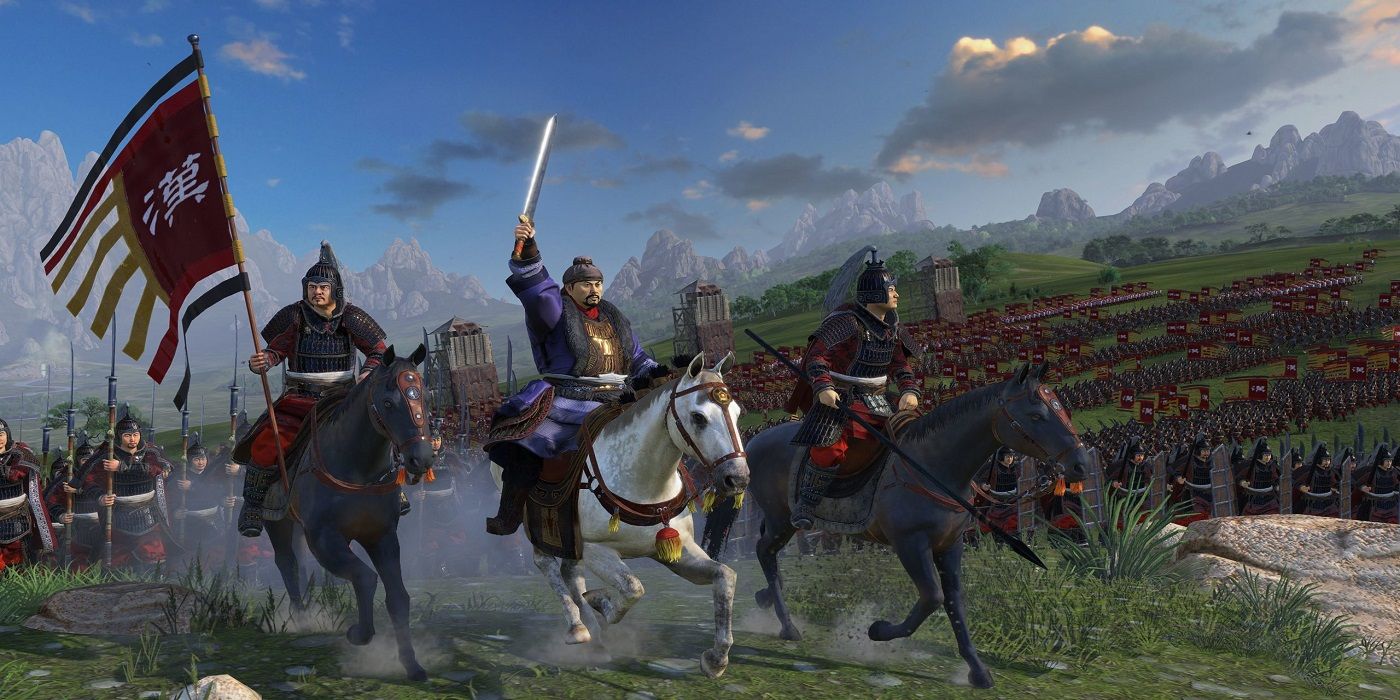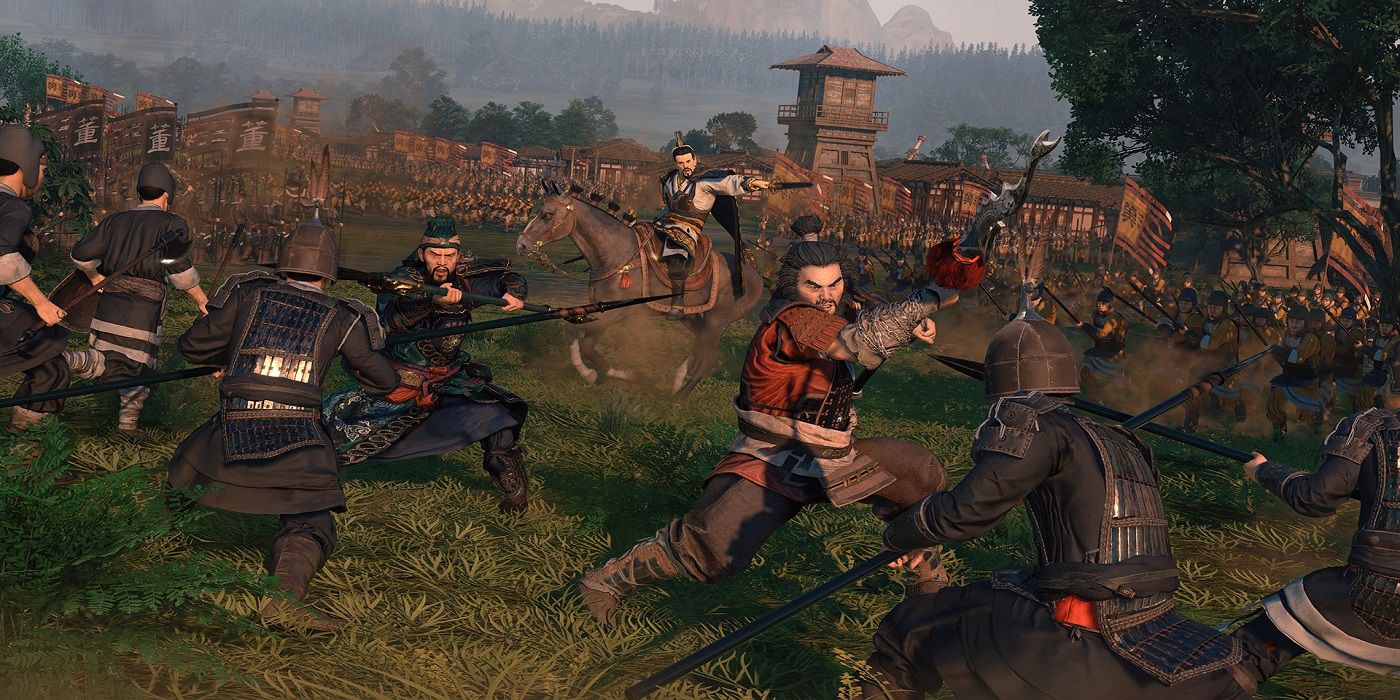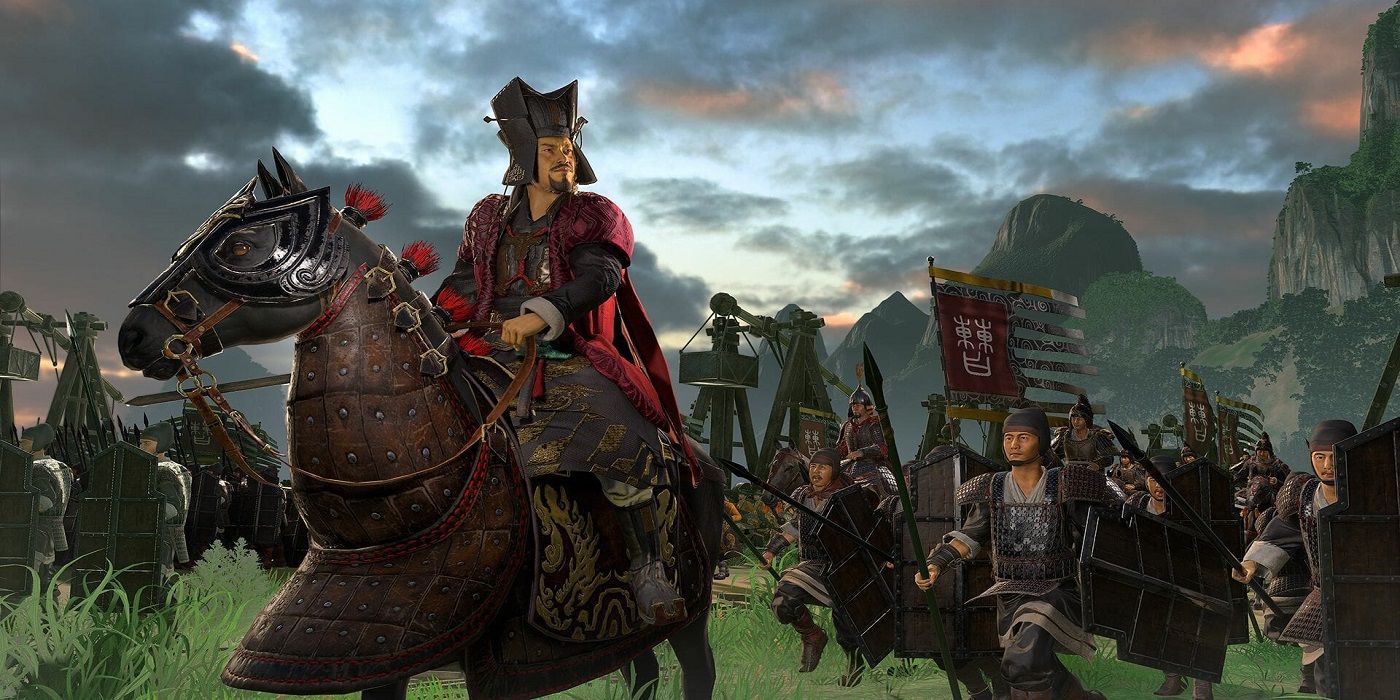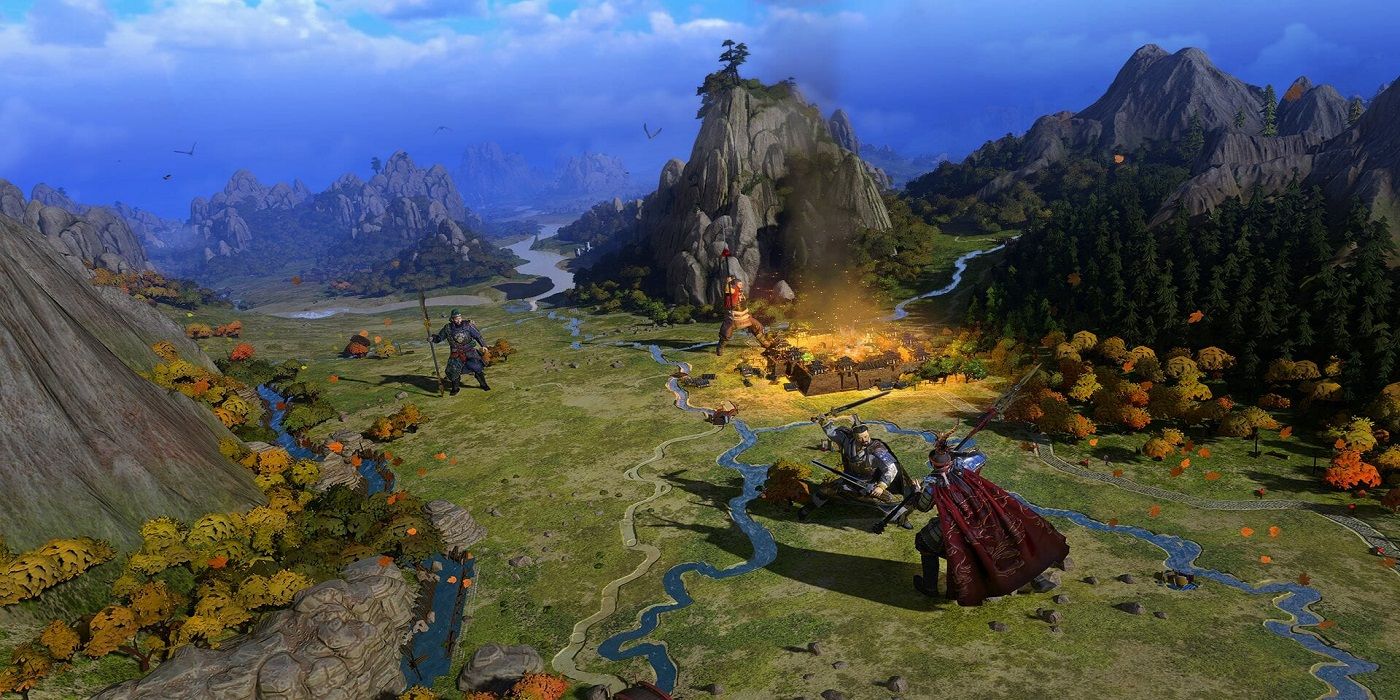Total War: Three Kingdoms is easily one of the best strategy games currently on the market. It is a perfect blend of the time-honed formula of historical Total War games and the powerful heroes and mystical elements explored by the Total War: Warhammer games. The game has a huge number of characters to play as, complex and interesting faction mechanics, and breathtaking in-game visuals that make it a treat to watch a campaign unfold.
The release of Three Kingdoms brought a lot of new features to the Total War franchise, most notably the inclusion of the most robust diplomacy system in any Total War game ever. The combination of historical and fantastic elements lends the perfect feel to an era surrounded in myth and legend, and is also a first for the franchise. Not only this, but the developers have just launched a massive DLC alongside a huge free update, both of which add even more new design elements into an already fantastic strategy game.
The amount of content and features added in this DLC is impressive, but there is also the question of what these features add to the experience of playing a campaign. In short, the features listed below make it worthwhile to play another, even multiple, new campaigns in the game.
Timelines
The Mandate of Heaven DLC begins in 182 CE, eight years before the beginning of the 190 CE start date for the main campaign. The earlier start date might not seem like that big of a deal since it is only about 40 turns before the beginning date of the normal campaign, but those 40 turns make a huge difference in a game focused on accurate history.
By 190 CE, all of the playable factions have a decently sized army and a bit of territory to work with- or at least can claim territory within the first couple of turns. Meanwhile, Dong Zhuo starts as a tyrant with the remnants of the Han Empire as his vassal and the rest of the map carved up by rival warlords. Eight years prior, however, most of the playable warlords, including Dong Zhuo, were mere vassals of the Han without land or title.
In the short time before the start of the main campaign, the Yellow Turban Rebellion sprung up and fractured the Han, forcing the emperor to give power to regional warlords. This ultimately resulted in the downfall of the Han and the ascendance of the opportunistic Dong Zhuo, kicking of the tumultuous Three Kingdoms saga, one of the most legendary times in Chinese history. The earlier start date allows players to step into the shoes of the emperor and his closest allies, take up the call of the Yellow Turban Rebellion, or play through the humble origins of the heroes who would go on to found the eponymous Three Kingdoms.
Perhaps the most interesting feature brought in by the new extended timeline is the way that the initial mandate war between the Han and the Yellow Turbans can eventually give way to the more familiar squabbling warlords by rolling into the main campaign. Over time, familiar factions will emerge and events will unfold based on certain criteria that allow the earlier start to become a version of the main campaign altered by the player's actions.
Factions
The earlier start date provides the opportunity to play as several new factions, or get a new perspective on already-playable factions from the main campaign. The new factions include Liu Hong, the emperor, who is not a playable character but has a very unique playstyle. As the emperor, the game revolves around balancing factions in the court to keep corruption at bay and confer various bonuses. Playing as the emperor means frantically trying to prop up an empire in mid-collapse while dodging usurpers and power-hungry warlords.
Liu Chong, one of the emperor's most loyal kinsmen, is a powerful warrior with some of the best military units in the game. His role is to prop up the empire with his combat prowess, and he can now also be played at the 190 CE start date. Lu Zhi was a great adviser and scholar who played a pivotal role in defeating the Yellow Turbans and teaching future leaders like Gongsun Zan and Liu Bei. He also serves to save the Han, but he is more of a cunning strategist than a fearsome warrior. Both Liu Chong and Lu Zhi have new faction mechanics that revolve around displaying war trophies or great literary works, respectively.
On the other side of the new factions are the Yellow Turbans. While some Yellow Turban factions have been playable through previous DLC, these three original founders of the rebellion are a much more interesting prospect to play. Their mechanics work extremely well for a co-op campaign, which is already one of the strengths of Three Kingdoms.
The three Yellow Turban founders share a single pool of their faction currency, Zeal, which provides bonuses based on unique conditions met by each of the three factions. Zhang Jue, the General of Heaven, is the eldest brother and leader of the rebellion, focused on the overall strategy to take the mandate of heaven from the Han. Zhang Liang, the General of the People, is focused on defense, and starts as the stalwart barrier between the other brothers and Lu Zhi. Zhang Bao is the General of the Land, and earns bonuses based on aggressive expansion and victory in combat. These new factions share a new reform tree as well as the ability to sow discord in neighboring Han lands, and can only win by changing history and deposing the Han.
Lastly, Cao Cao, Liu Bei, Dong Zhuo, and Sun Jian can all be played at 182 CE. They all start as landless servants of the Han, and must build up their strength before the Han collapse and the main events of the campaign begin. Liu Biao is also added as a playable faction for the first time.
Battles, Diplomacy and Campaign Management
Along with the huge additions to the faction roster come a wide array of smaller tweaks that nonetheless change the game drastically for the better. Some fan favorite characters like Diao Chan (one of the four beauties of ancient China- who had a generic character portrait) are now legendary characters up for recruitment. The systems for capturing the child emperor and becoming emperor oneself have also been overhauled, allowing the player to drastically change their form of government or use the child emperor as a more effective pawn.
Armies can now recruit soldiers in friendly or neutral regions, making marching across China much more accessible for factions that only have an army to their name, while 40 new units, new siege engines and deployable towers, oil, and barricades make real-time battles a bit more interesting than they used to be. This is much needed after Total War: Warhammer set the gold standard for unit variety and interesting battles in strategy games.
Replayability
Ultimately, the Mandate of Heaven DLC acts more like a complete overhaul of the game than just a DLC. The Eight Princes DLC was mildly disappointing but this new heap of content is worth so much more than its $10 price tag. This DLC has the potential to completely revitalize a stagnant campaign, and gives plenty of impetus to start multiple playthroughs as each of the very different factions now available. The addition of new battle features spices up multiplayer, firming up Three Kingdoms as a great choice for competitive strategy, while the earlier start date delivers spades of interesting history and exciting events.
The developers have also taken advantage of the update to make modding tools much easier to use, since a strong modding community can improve their games to no end. This update should give any player high hopes for future DLCs and the long-term improvement of every Total War game to come.
Total War: Three Kingdoms and its DLCs are available now on PC.




